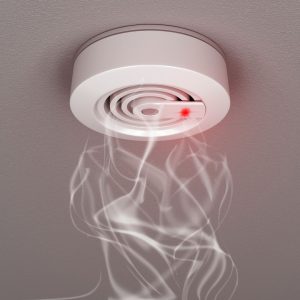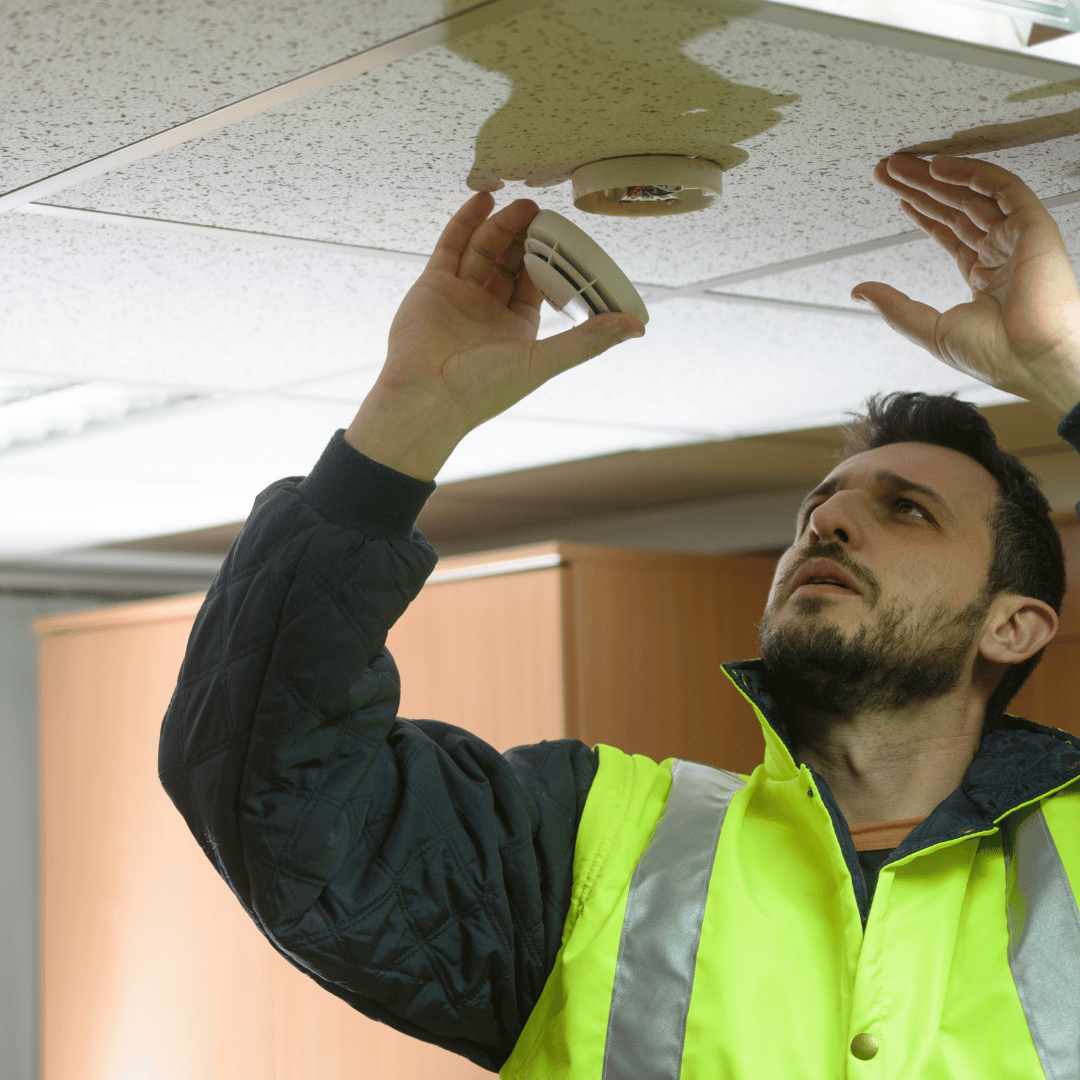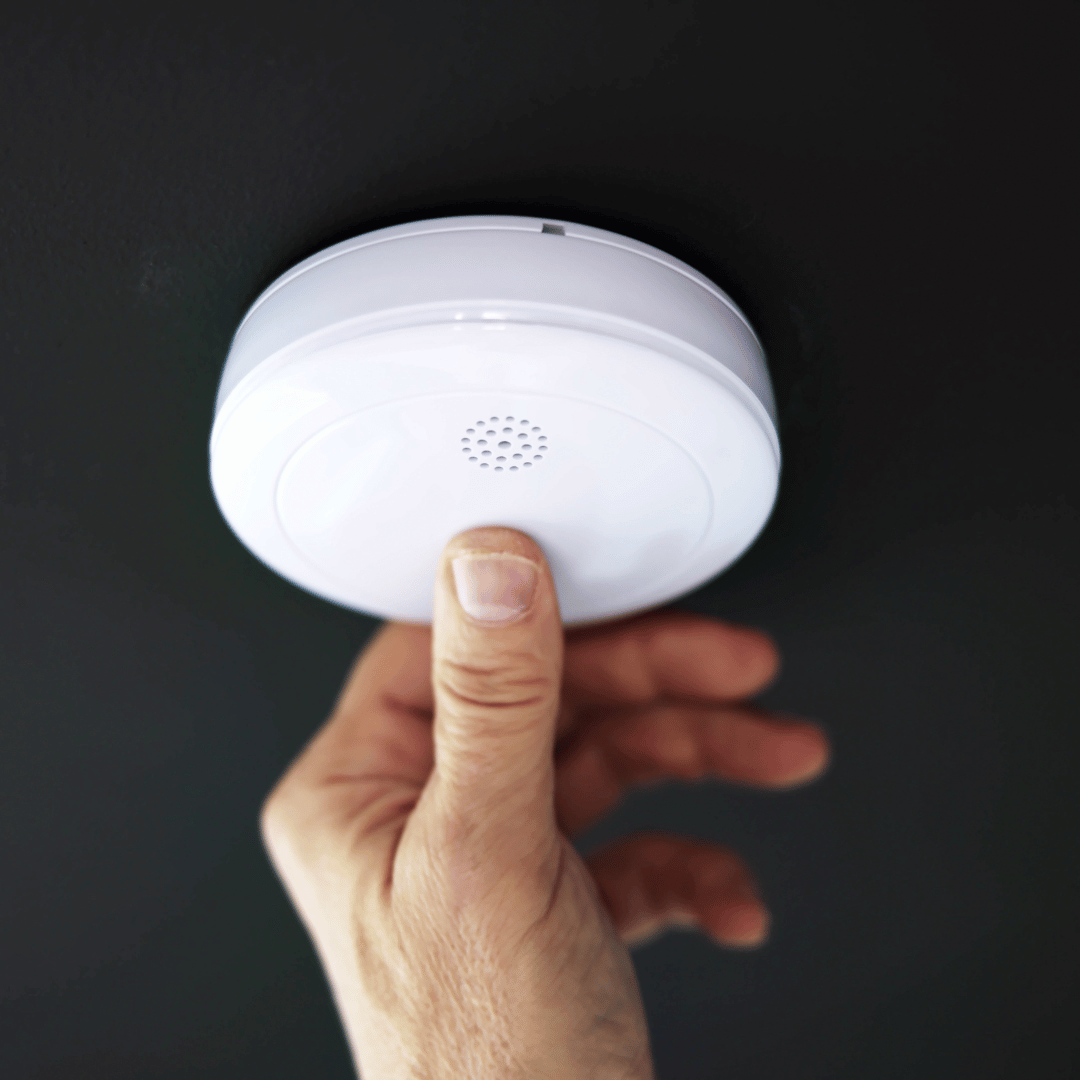
Understanding System Sensor Smoke Detector Beeping
Have you ever wondered why your System Sensor smoke detector keeps beeping? It can be quite frustrating, but understanding the reasons behind it can help resolve the issue effectively.
When your System Sensor smoke detector emits a beeping sound, it’s trying to communicate something important to you. One common reason for this beeping is a low battery. Like most electronic devices, smoke detectors rely on batteries to function, and when the battery is running low, the detector will emit a periodic beep to alert you to replace it.
Another possible cause of beeping is a malfunction within the detector itself. This could be due to various factors, such as dust accumulation, electrical issues, or sensor failure. In such cases, it’s essential to troubleshoot the problem or seek professional assistance to address the issue promptly.
Lastly, if your System Sensor smoke detector is beeping consistently and the battery is not the issue, it could indicate that the detector has reached the end of its life span. Smoke detectors typically have a lifespan of 8-10 years, after which they may become less reliable and should be replaced.
At HomeSmiles, we understand the importance of addressing beeping smoke detectors promptly to ensure the safety of your home. Our team of experts can diagnose the issue, replace batteries, troubleshoot malfunctions, or recommend replacements as needed, providing you with peace of mind and a safer home environment.
The Status of System Sensor: A Leader in Fire Safety Technology
If you’ve been wondering whether System Sensor is still in business, you can rest assured that they are indeed active in the industry. System Sensor has a longstanding reputation as a leader in fire safety technology, with a commitment to innovation and excellence.
Founded in 1984, System Sensor has established itself as a trusted provider of smoke detectors and fire alarm systems worldwide. Their products are known for their reliability, performance, and adherence to strict quality standards.
Despite changes in the industry and advancements in technology, System Sensor remains dedicated to advancing fire safety through continuous research and development. They continue to manufacture state-of-the-art smoke detectors and fire alarm systems designed to protect lives and property.
At HomeSmiles, we recognize the importance of partnering with reputable brands like System Sensor to ensure the safety and security of our clients’ homes. That’s why we trust System Sensor products for their reliability and effectiveness in detecting smoke and fire hazards.
Whether you’re considering installing new smoke detectors or need assistance with existing ones, you can count on HomeSmiles to provide expert advice and professional installation services. Your safety is our top priority, and we’re here to help you protect what matters most.
Turning Off Your System Sensor Smoke Detector: A Simple Guide
If you’ve ever found yourself in a situation where you need to silence or turn off your System Sensor smoke detector, you’re not alone. Understanding how to do this safely and effectively can provide peace of mind in moments of alarm or annoyance.
Fortunately, most System Sensor smoke detectors are equipped with a reset button or switch that allows you to silence the alarm temporarily. Here’s a simple guide to help you navigate this process:
Locate the Reset Button or Switch: Take a moment to familiarize yourself with your System Sensor smoke detector and locate the reset button or switch. This is typically located on the front or side of the detector and may be labeled as “Reset” or “Silence.”
Press and Hold the Reset Button: Once you’ve located the reset button, press and hold it for a few seconds. This action should silence the alarm and reset the detector. You may hear a brief confirmation beep or see a visual indicator to signify that the alarm has been silenced.
Follow Any Additional Instructions: Depending on the model of your System Sensor smoke detector, there may be additional instructions or steps to follow after pressing the reset button. Be sure to consult the user manual for specific guidance or recommendations.
It’s important to note that while silencing the alarm may provide temporary relief, it’s crucial to address the underlying cause of the alarm promptly. Whether it’s a low battery, a malfunction, or a genuine fire hazard, taking action to resolve the issue is essential for your safety and the safety of your home.
At HomeSmiles, we understand the importance of having functional and reliable smoke detectors in your home. If you’re experiencing issues with your System Sensor smoke detector or need assistance with maintenance or replacement, our team of experts is here to help. We can diagnose the problem, perform necessary repairs, or recommend suitable replacements to ensure your home remains safe and secure.
Determining the Age of Your System Sensor Smoke Detector
Understanding the age of your System Sensor smoke detector is crucial for ensuring its continued reliability and effectiveness in detecting smoke and fire hazards. While smoke detectors don’t have an expiration date like perishable goods, they do have a recommended lifespan.
One way to determine the age of your System Sensor smoke detector is to check the manufacturer’s label or packaging for the manufacture date. This information is typically printed on the detector itself or on the packaging in which it was purchased.
Another indicator of the age of your smoke detector is its recommended lifespan. Most smoke detectors have a lifespan of 8-10 years, after which they may become less reliable and should be replaced. If you’re unsure of the age of your smoke detector, it may be time to consider replacing it, especially if it’s nearing the end of its recommended lifespan.
At HomeSmiles, we recommend regular inspection and maintenance of your smoke detectors to ensure they remain in optimal condition. If you’re unsure about the age or condition of your System Sensor smoke detector, our team of experts can provide a thorough assessment and recommend appropriate measures to ensure the safety of your home.
Ensuring Your Smoke Sensor is Working: Simple Steps for Peace of Mind
Knowing whether your System Sensor smoke detector is functioning properly is essential for maintaining the safety of your home. Fortunately, there are simple steps you can take to ensure that your smoke sensor is in good working condition.
One of the easiest ways to test your smoke detector is by pressing the test button located on the device. This button is typically marked with the word “Test” or a symbol resembling a bell or alarm. Pressing the test button will initiate a test alarm, allowing you to verify that the detector is operational.
During the test, listen for the alarm sound to ensure it is loud and consistent. If the alarm sounds weak or does not activate at all, it may indicate a problem with the detector that requires further investigation or maintenance.
In addition to conducting regular tests using the test button, it’s important to keep your smoke detector clean and free of dust or debris. Use a soft brush or vacuum attachment to gently remove any buildup that may accumulate on the detector’s surface or vents.
At HomeSmiles, we understand the importance of regular maintenance and testing of smoke detectors to ensure the safety of your home. If you’re unsure about the functionality of your System Sensor smoke detector or need assistance with maintenance, our team of experts is here to help. Contact us today to schedule a professional inspection and ensure the continued effectiveness of your smoke detection system.
Understanding the Lifespan of Smoke Sensors
Smoke sensors, including those manufactured by System Sensor, play a critical role in protecting your home and loved ones from fire hazards. However, like all electronic devices, smoke sensors have a limited lifespan.
Typically, smoke sensors have a recommended lifespan of 8-10 years. Over time, the components within the sensor may degrade, leading to decreased sensitivity and reliability. As a result, it’s important to replace your smoke sensors periodically to ensure they continue to function effectively.
Several factors can affect the lifespan of smoke sensors, including environmental conditions, usage, and maintenance. Exposure to high humidity, dust, or contaminants can accelerate wear and tear on the sensor components, potentially reducing its lifespan.
Regular testing, cleaning, and maintenance can help prolong the life of your smoke sensors and ensure they remain in optimal condition. However, it’s essential to recognize when it’s time to replace them to maintain the safety of your home.
At HomeSmiles, we understand the importance of smoke sensor maintenance and replacement in ensuring the safety of your home. If you’re unsure about the age or condition of your smoke sensors, our team of experts can provide a thorough assessment and recommend appropriate measures to keep your home safe and secure.
- Protecting Your Property: Why the Right Cleaning Method Makes All the Difference
- The #1 Thing That’s Dulling Your Curb Appeal (And How to Fix It)
- How Maintenance Bundles Provide Peace of Mind for Busy Small Business Owners and Facility Managers
- Essential vs. Complete Home Packages: Choosing the Right Preventive Care for Your Property
- How a Simplified Service Model Benefits Both Homeowners and Franchisees Alike


